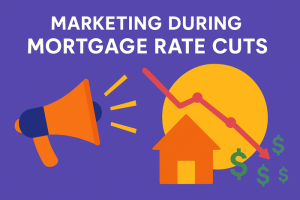Summary
This article explores how mortgage teams can leverage key performance metrics to improve productivity. Learn about tracking metrics such as loan application volume, conversion rates, and customer satisfaction to optimize operations. By the end, you’ll know how to use data-driven insights to align your team’s efforts and boost overall business performance.
Are you looking to elevate the performance of your loan officers? Ready to improve the productivity of your mortgage brokerage as a whole? If so, then you need to start leveraging metrics to assess the overall performance of your mortgage team.
Metrics are quantifiable figures that are used to assess the success or failure of particular processes within your brokerage. In the mortgage industry, metrics are often referred to as key performance indicators (KPIs).
Below, we outline which metrics are the most pivotal to the success of your business and explore the best ways to accurately measure these statistics.
What Metrics Are Most Important?
 While it is certainly important to track various metrics regarding the performance of your mortgage brokers, not all data is created equal. Some KPIs have a stronger correlation to the success of your mortgage team than others.
While it is certainly important to track various metrics regarding the performance of your mortgage brokers, not all data is created equal. Some KPIs have a stronger correlation to the success of your mortgage team than others.
Some of the most useful metrics to examine are:
Cycle Time
Cycle time is one of the most vital metrics that you can track. Which is calculated by dividing the total number of days from application to funding by the amount of loans funded during that time frame.
Cycle time is a strong indicator of your brokerage’s overall efficiency. By incorporating modern software such as the BNtouch Team CRM, you should see a reduction in your overall cycle time.
Tracking cycle time is a great way to boost your brokerage’s reputation, as well. While virtually every mortgage broker claims to process loans “fast,” calculating cycle time allows you to support this claim with hard data.
You can even incorporate this information in an ad campaign by showing that “our team closes loans 25% faster than the average mortgage broker.”
Conversion Rate
Another vital metric that every mortgage broker should be tracking is their conversion rate. This KPI is calculated by dividing the amount of loans funded by the total number of applications received during the same time period.
If you have a low conversion rate, then there is a good chance that your team is wasting resources in at least one facet of your business. Conversion rates gauge the overall health of your brokerage and should help you achieve sustained growth in the mortgage industry.
Approval Rate
Every loan officer should track their approval rates. The approval rate is determined by dividing the number of approved applications by the amount of submitted applications.
If your brokerage’s approval rate is low, then it means that your team is wasting resources on dead-end applicants.
By implementing modern CRM software, you can speed up the document gathering and review process to minimize waste. These analytical tools can help you to rapidly identify unqualified borrowers, allowing you to shift your attention to stronger applicants.
Solutions from BNTouch
If your mortgage brokerage is underutilizing its performance metrics, BNTouch can help. We provide mortgage brokers and their teams with access to cutting-edge CRM software and reporting tools. Our affordable tools can optimize efficiency, improve conversion rates, and make your daily life less stressful.
Key Takeaways
- Use metrics to measure performance and set goals
Tracking metrics allows mortgage teams to identify strengths and weaknesses, empowering them to set specific goals and optimize performance.
- Implement consistent tracking systems
Setting up tracking systems ensures mortgage teams can consistently monitor progress and adjust strategies in real time.
- Analyze data to drive decision-making
Data analysis is essential for making informed decisions about sales strategies, employee performance, and customer engagement.
Commonly Asked Questions
- How can mortgage teams improve performance with metrics?
Mortgage teams can track key performance indicators (KPIs) to better assess their performance, make data-driven decisions, and adjust their strategies for optimal results.
- What role do metrics play in team accountability?
Metrics help set clear expectations for team members, hold them accountable for their performance, and allow managers to track progress toward goals.
- Why is it important to measure conversion rates?
Conversion rates help mortgage teams understand how effectively they are converting leads into clients, allowing them to identify areas for improvement.
- How do team metrics contribute to better customer service?
By analyzing metrics related to customer service, teams can ensure they meet or exceed client expectations, leading to higher satisfaction and loyalty.





